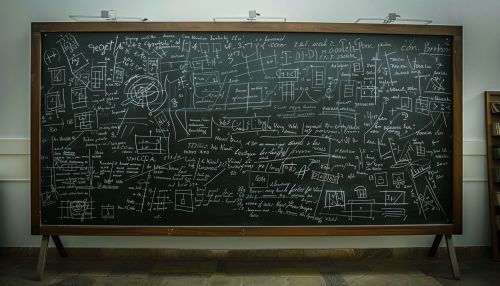List of mathematical proofs
Introduction
Mathematical proofs are the cornerstone of mathematics, providing a rigorous and logical framework for mathematical truths. A proof is a deductive argument that establishes the truth of a mathematical statement. It uses the principles of logic and the axioms or definitions of the mathematical system within which the proof is being made. This article provides a comprehensive list of mathematical proofs, spanning various branches of mathematics, from geometry to algebra, calculus, and number theory.


Geometry
Geometry is one of the oldest branches of mathematics, with proofs dating back to ancient Greece.
Pythagorean Theorem
The Pythagorean Theorem is one of the most famous proofs in geometry. It states that in a right-angled triangle, the square of the length of the hypotenuse (the side opposite the right angle) is equal to the sum of the squares of the lengths of the other two sides. This theorem has been proven in many different ways throughout history.
Euclid's Elements
Euclid's Elements is a foundational work in the history of mathematics, consisting of 13 books that contain many important geometric proofs. These include proofs of the existence of infinitely many prime numbers, the incommensurability of the side and diagonal of a square, and the Pythagorean theorem.
Algebra
Algebra is a branch of mathematics dealing with symbols and the rules for manipulating those symbols.
Quadratic Formula
The Quadratic Formula is a proof in algebra that provides the solution for any quadratic equation. The formula is derived by completing the square on a general quadratic equation.
Fundamental Theorem of Algebra
The Fundamental Theorem of Algebra states that every non-constant polynomial equation with complex coefficients has at least one complex root. This theorem is fundamental to the study of algebra and has been proven using various methods, including complex analysis and topology.
Calculus
Calculus is the mathematical study of continuous change. It has two major branches, differential calculus and integral calculus, which are related by the fundamental theorem of calculus.
Fundamental Theorem of Calculus
The Fundamental Theorem of Calculus is a theorem that links the concept of the derivative of a function with the concept of the integral of a function. It is an essential theorem in calculus and has been proven in various ways.
Mean Value Theorem
The Mean Value Theorem is a fundamental theorem in differential calculus. It states that if a function is continuous on a closed interval and differentiable on the open interval, then there exists a point in the interval where the derivative of the function is equal to the average rate of change of the function over the interval.
Number Theory
Number theory is a branch of mathematics devoted to the study of the integers.
Fermat's Last Theorem
Fermat's Last Theorem is a theorem in number theory that states that no three positive integers a, b, and c can satisfy the equation a^n + b^n = c^n for any integer value of n greater than 2. The proof of this theorem was completed by Andrew Wiles in 1994.
Prime Number Theorem
The Prime Number Theorem is a theorem in number theory that describes the distribution of prime numbers. It states that the probability that a randomly chosen large number is prime is inversely proportional to its number of digits, or to the logarithm of the number.
